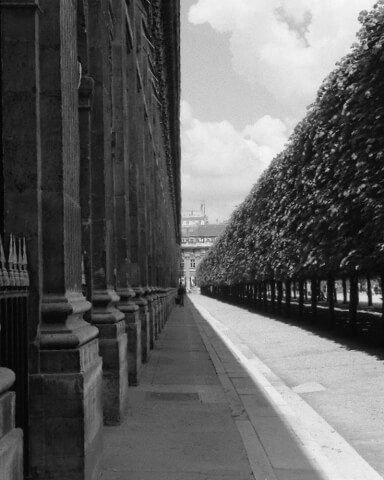A recent study says: Yes
Study results show that the physical distance we perceive to be comfortable in keeping our distance from others will remain significantly greater after the pandemic.
BY THE EDITOR
Mind the Distance
A joint research study by Ludwig-Maximilians-Universität Munich and Johannes Gutenberg Universität Mainz, recently published in Nature magazine, concluded that the distance perceived as comfortable before the pandemic averaged 1.18 m at the end of the pandemic.
A significant increase in the distance. It remains to be seen whether this wider gap will persist over time.
Our guess is yes. The global pandemic and its actual and potential life and death consequences were too formative.
Feel-good distance
Preferred Interpersonal Distance (IPD) is the technical term for the distance at which we feel comfortable being at a distance from others. This distance has always been measured in scientific studies.
We let people who are very familiar to us get close: 0 – 45 cm. For friends, the average distance is 45 – 120 cm. For strangers, the distance is 120 – 365 cm.
If this distance is reduced unintentionally, we react with discomfort and try to regain the distance we prefer. An experience we know from almost every visit to the supermarket.
Contrary to earlier assumptions, the distance with which we feel comfortable is only to a certain extent dependent on the cultural group.
On the other hand, drastic experiences such as long periods of loneliness or even isolation have a strong impact on the well-being distance and usually lead to an increase in the individual’s distance.
More distance also desired after the pandemic
In pre-pandemic research, it was considered established that the space we perceive as comfortable in relation to strangers is circular and the comfort distance is at least one meter.
Sanitation measures to contain COVID-19 provided a minimum distance in almost all countries. In Germany, the target was 1.5 – 2 m. The feel-good distance in the strict lockdown times was at the upper end, at 1.8 m.

In France, the prescribed minimum distance was 1.0 m, in the USA 1.8 m and in Japan 2.0 m.
The pandemic has required a major shift in our “normal” behavior and has opened up a vast research terrain for scientists in the everyday environment.
Greeting and kiss goodbye?
Handshaking, an important part of the greeting culture in much of the Western world and already abolished in many doctors’ offices before the pandemic, is unlikely to return.
The somewhat silly elbow salute or fist salute (completely illogical and just observable on the soccer field) will hopefully also disappear.
Actual sympathy and closeness could never be traced by the type of greeting. A Corona-ideal wave or short bow is often more heartfelt and, at times, more respectful than kissy-kissy before and possibly after Corona. Namaste.
Fresh air, the new luxury
The pandemic has also acted as an accelerator in this area for a trend that architecture has long known. Windows that do not open to facilitate air conditioning are less and less accepted. Gardens, terraces, balconies and roof terraces, have become disproportionately more attractive.
We have all internalized that fresh air is our friend. Our perception of distance changes in enclosed spaces. The lower the ceiling height, the stronger our subjective feeling of wanting to increase the distance to other people.

The current Venice Architecture Biennale is trying to find answers to the question: How will we live together? to find.
It is about new constellations of households, living together across borders and on our planet, but also about individual closeness and distance.
What friendship survive the pandemic ?
The pandemic also has far-reaching effects on friendships. Three factors are highly relevant here:
Time
They must exist somewhere – the people who had more time because of the pandemic and were able to use it carefree.
This also left less time to cultivate friendships. Time will tell which friendships have survived.
Distance
The inevitable physical distance has not harmed many friendships thanks to electronic media and the good old telephone.
Balance
The acid test for many acquaintances and many a friendship: COVID-19 has brought illness or even death very close to many of us.
This has led many to take stock and ask, what do I want to have to do after the pandemic?
To paraphrase the Italian film diva Sophia Loren:
“In life, you have to constantly choose between sincerity and politeness”.
Photographs © GloriousMe




